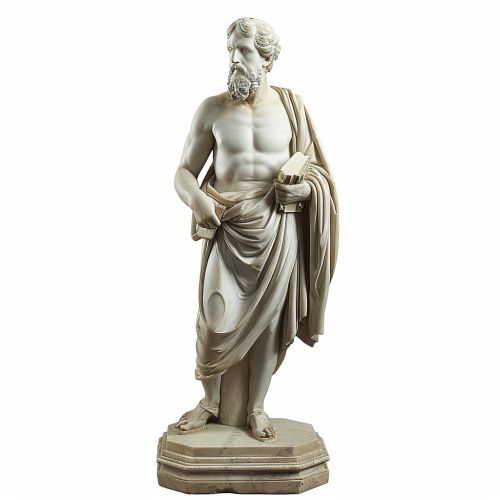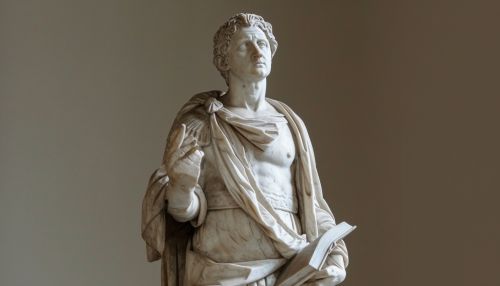Ovid
Early Life
Publius Ovidius Naso, known as Ovid, was born on March 20, 43 BC, in Sulmo, in an Apennine valley east of Rome, to an important equestrian family. His father wished him to study rhetoric towards the practice of law. According to Seneca the Elder, Ovid tended to the emotional, not the argumentative pole of rhetoric. After the death of his brother at 20 years of age, Ovid renounced law and began travelling to Athens, Asia Minor, and Sicily.
Career
Ovid spent the first 25 years of his literary career primarily writing poetry in elegiac meter, his first five books of the Amores being published at intervals from about 20 BC. He was also the author of a lost tragedy, Medea. He is believed to have continued revising the Amores up until about 1 AD, by which time he had begun his next major work, the Heroides.
Exile
In AD 8, Ovid was banished to Tomis, on the Black Sea, by the exclusive intervention of the Emperor Augustus, without any participation of the Senate or of any Roman judge. This event shaped all his following poetry. Ovid wrote that the reason for his exile was carmen et error – "a poem and a mistake".
Works
Ovid's works are widely considered masterpieces of Latin literature. His most famous work, the Metamorphoses, is a mythological hexameter poem that inspired many authors, such as Shakespeare, to retell the old myths and legends. Ovid's Fasti is a poetic calendar presenting the Roman religious festivals and astronomical lore. His Ibis is an elegiac curse poem attacking an adversary. His Tristia and Epistulae ex Ponto are collections of letters written in elegiac couplets from exile, which give a primary account of his experiences.
Legacy
Ovid's influence on Western art and literature cannot be overstated. His Metamorphoses remains one of the most important sources of classical mythology. His love poetry, particularly the Amores and Ars Amatoria, was much imitated in the Middle Ages and Renaissance.
See Also


